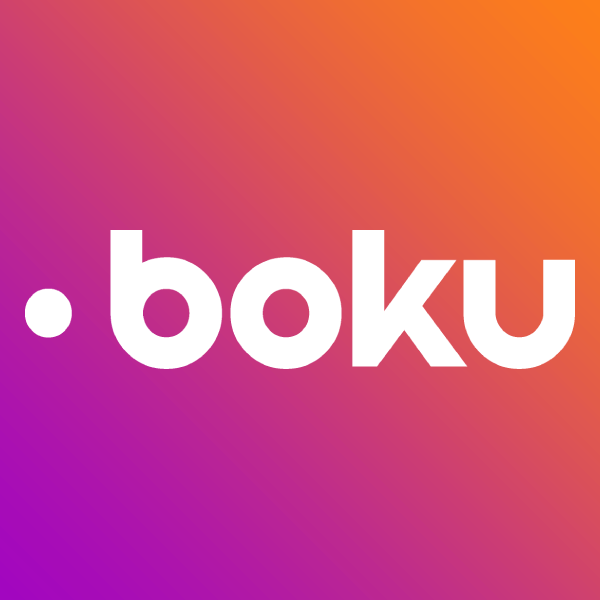Boku

Boku Overview: Mobile-First Global Payment Gateway
Boku is a mobile payments company founded in 2009 and based in San Francisco, with additional offices in the US, UK, India, Estonia, Germany, and more. As a publicly listed company on the London Stock Exchange (BOKU.L), Boku helps merchants accept payments through direct carrier billing (DCB), digital wallets, and real-time account-to-account (A2A) transfers in over 90 countries. This service reaches more than 7 billion mobile accounts worldwide.
Boku’s mission is to create new revenue streams by providing mobile-friendly payment options that avoid the usual hassles of credit and debit cards. This approach is particularly effective for businesses in digital content, subscriptions, gaming, and telecom bundling, where mobile use is high and card use is low.
Network & Global Reach
Massive Local Connections
-
Integrates with 200+ mobile network operators and hundreds of wallets and real-time payment channels across more than 70 countries.
-
Supports a wide range of payment types: carrier billing, e-wallets, bank transfers, vouchers, and local card networks.
Reach & Scale
-
7+ billion mobile payment accounts reachable.
-
Handles over $9 billion in annual processing volume.
-
Acquired more than 55 million new users in the past 12 months.
-
Achieved a 475% month-over-month growth in monthly active users since 2018.
-
Enables merchants to reach untapped audiences in emerging markets and increase both acquisition and retention.
Security, UX & Chargeback Protection
Multi-Factor Authentication
Boku’s checkout flows are secured with device-native authentication methods, such as PIN or biometrics, via users’ phones, eliminating the need to manually enter payment details.
Chargeback Elimination
All payments are authenticated in advance via the mobile network operator. This ensures high payment success rates and virtually eliminates chargebacks.
Enhanced Fraud Controls
Boku uses tokenization and real-time mobile identity verification features to add layers of fraud prevention. With the acquisition of Danal, the platform further strengthens its authentication and risk capabilities.
Platform & Merchant-Centric Integration
Unified API
Boku’s single API enables businesses to integrate once and access a diverse range of payment methods including mobile carriers, digital wallets, real-time bank transfers, and more.
Recurring & One-Tap Payments
Merchants can enable subscriptions, in-app purchases, and auto-renewals with minimal user friction through Boku’s merchant-initiated charging features.
Marketing Capabilities
Boku enables promotional bundling, such as including a subscription service with a mobile data plan. Merchants can run targeted offers directly in the payment flow.
Custom Implementations
For enterprise clients, Boku offers tailored integrations to support unique product or technical requirements, working closely with internal engineering teams.
Local Expertise & Settlement
In-Market Support
Boku has expert teams in 29 markets to help merchants with integration, payment regulation, and go-to-market strategy.
Global Settlement
-
Boku operates via 34 legal entities across 54 markets.
-
Supports fund settlement in 33 currencies.
-
Uses only top-tier global banks for fund holding and settlement.
-
Holds financial licenses such as:
-
Payment Institution authorization in Europe
-
RBI-approved Payment Aggregator license in India (as of 2024)
-
Various money service licenses in other countries
-
These ensure smooth and compliant transactions across jurisdictions.
Conclusion
Boku is a strong, mobile-first global payment platform aimed at creating high-conversion, secure, and localized experiences. It offers broad access through carrier billing, digital wallets, and real-time payments. This feature helps businesses grow internationally while simplifying the checkout process. Boku is particularly beneficial for companies looking to make money from mobile users and enter new markets in a secure, compliant, and efficient manner.
Boku: Frequently Asked Questions (FAQs)
What is Boku?
Boku is a mobile payments company founded in 2009 and based in San Francisco. It enables merchants to accept payments through direct carrier billing, digital wallets, and real-time account-to-account transfers in over 90 countries, reaching more than 7 billion mobile accounts worldwide.
Which payment methods does Boku support?
Boku supports carrier billing, e-wallets, real-time bank transfers, vouchers, and local card networks, with integration to 200+ mobile network operators and hundreds of wallets and payment channels.
What types of businesses benefit most from Boku?
Boku is particularly effective for businesses in digital content, subscriptions, gaming, and telecom bundling, where mobile usage is high and card use is low.
How secure is Boku?
Boku offers multi-factor authentication via device-native methods such as PIN or biometrics, eliminates chargebacks through pre-authentication by mobile network operators, and adds fraud prevention with tokenization and real-time mobile identity verification.
What integration options does Boku provide?
Boku’s unified API allows merchants to integrate once and access carrier billing, wallets, and real-time bank transfers. It also supports recurring payments, one-tap purchases, and promotional bundling.
Does Boku provide local market expertise?
Yes. Boku has teams in 29 markets to help with integration, regulations, and go-to-market strategies. It operates via 34 legal entities and supports settlement in 33 currencies.
What licenses and compliance measures does Boku hold?
Boku is GDPR compliant and holds licenses such as Payment Institution authorization in Europe, an RBI-approved Payment Aggregator license in India, and other money service licenses globally.